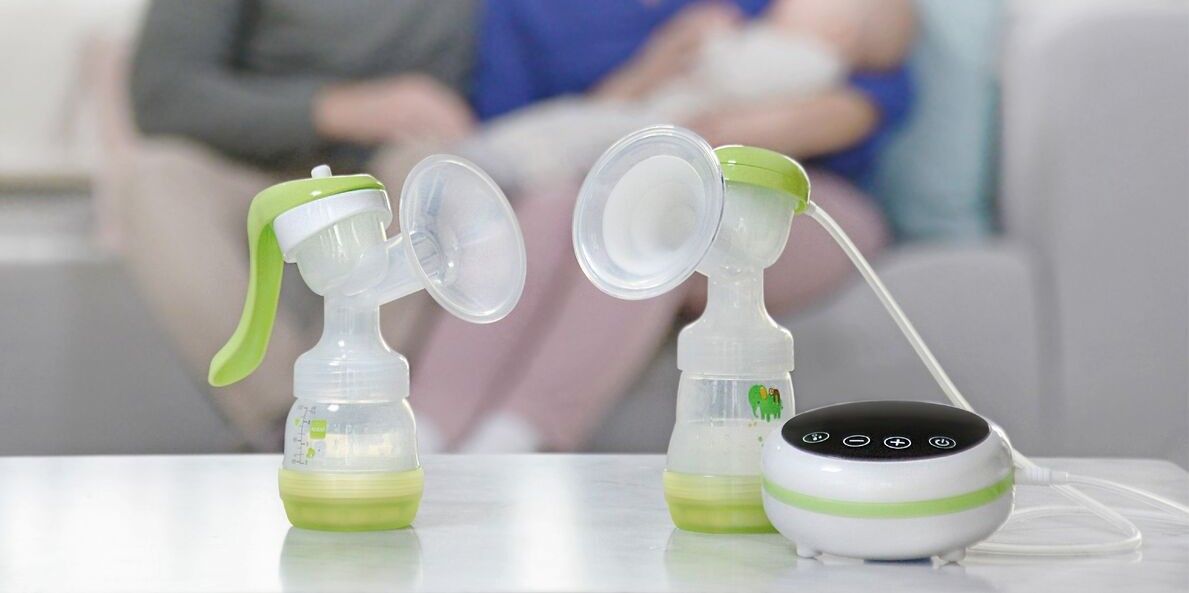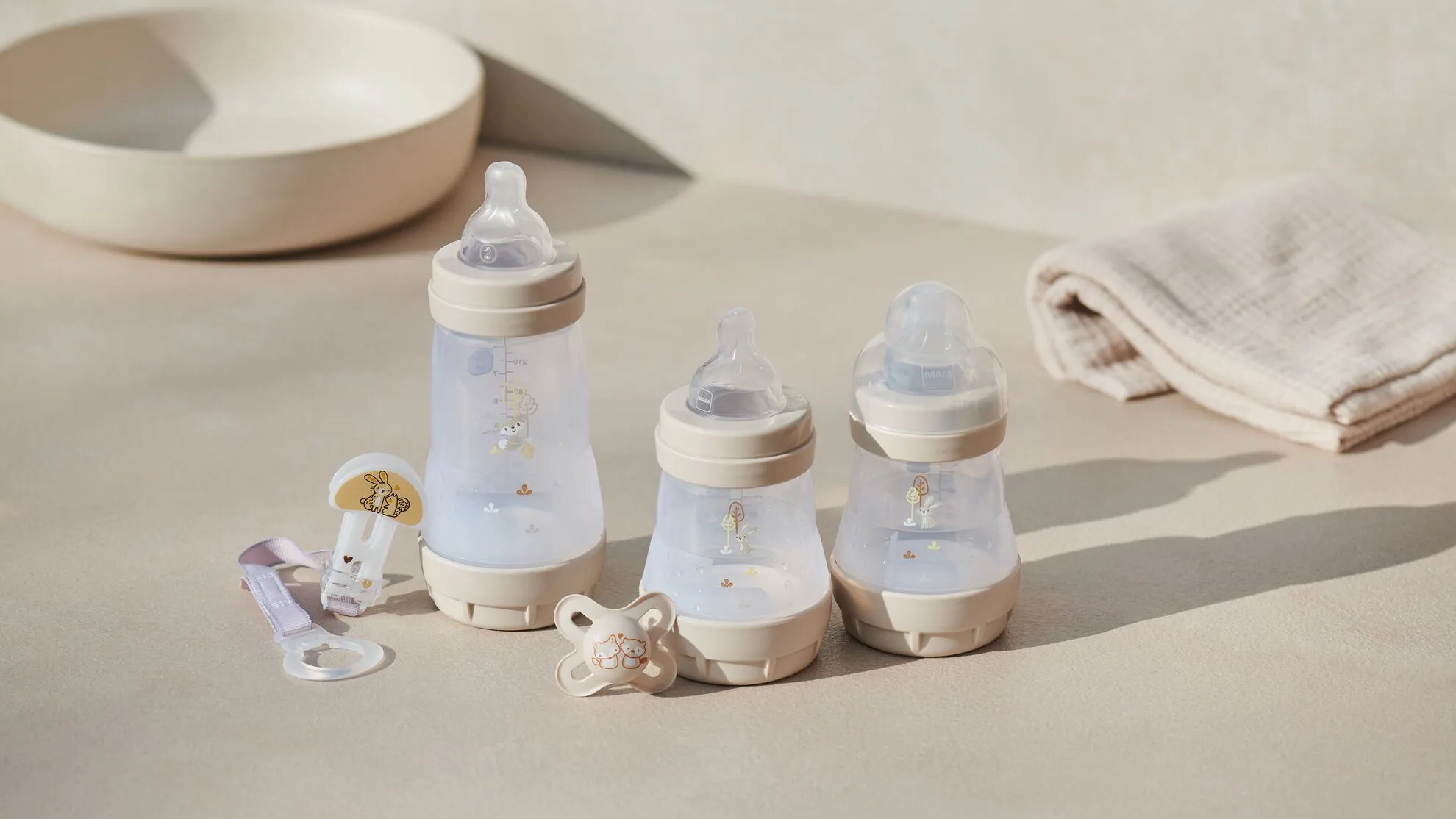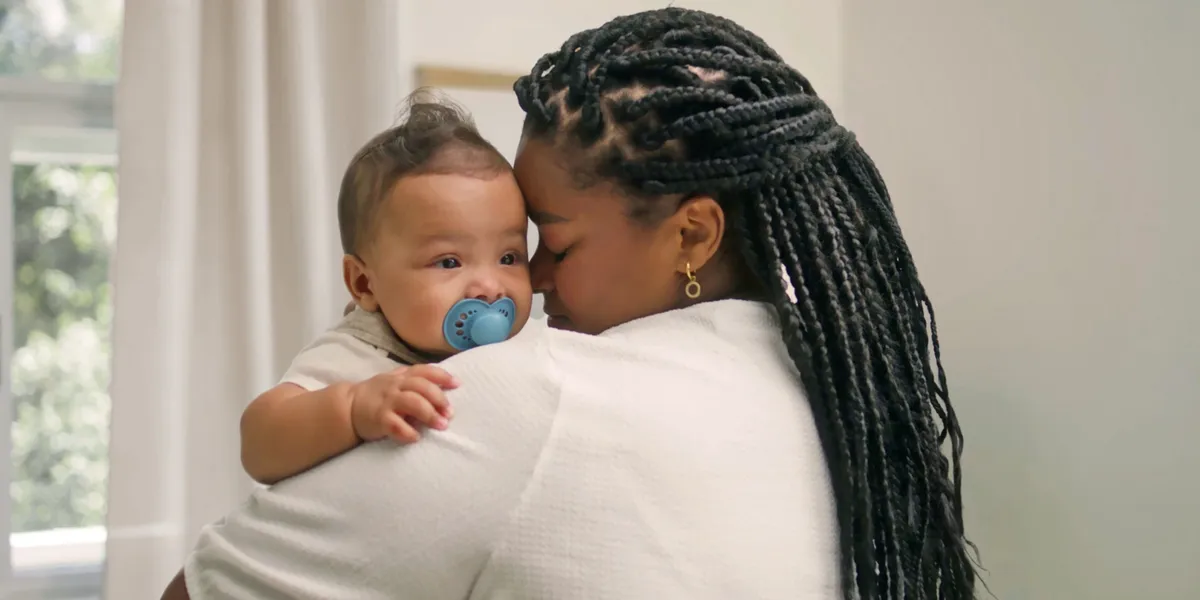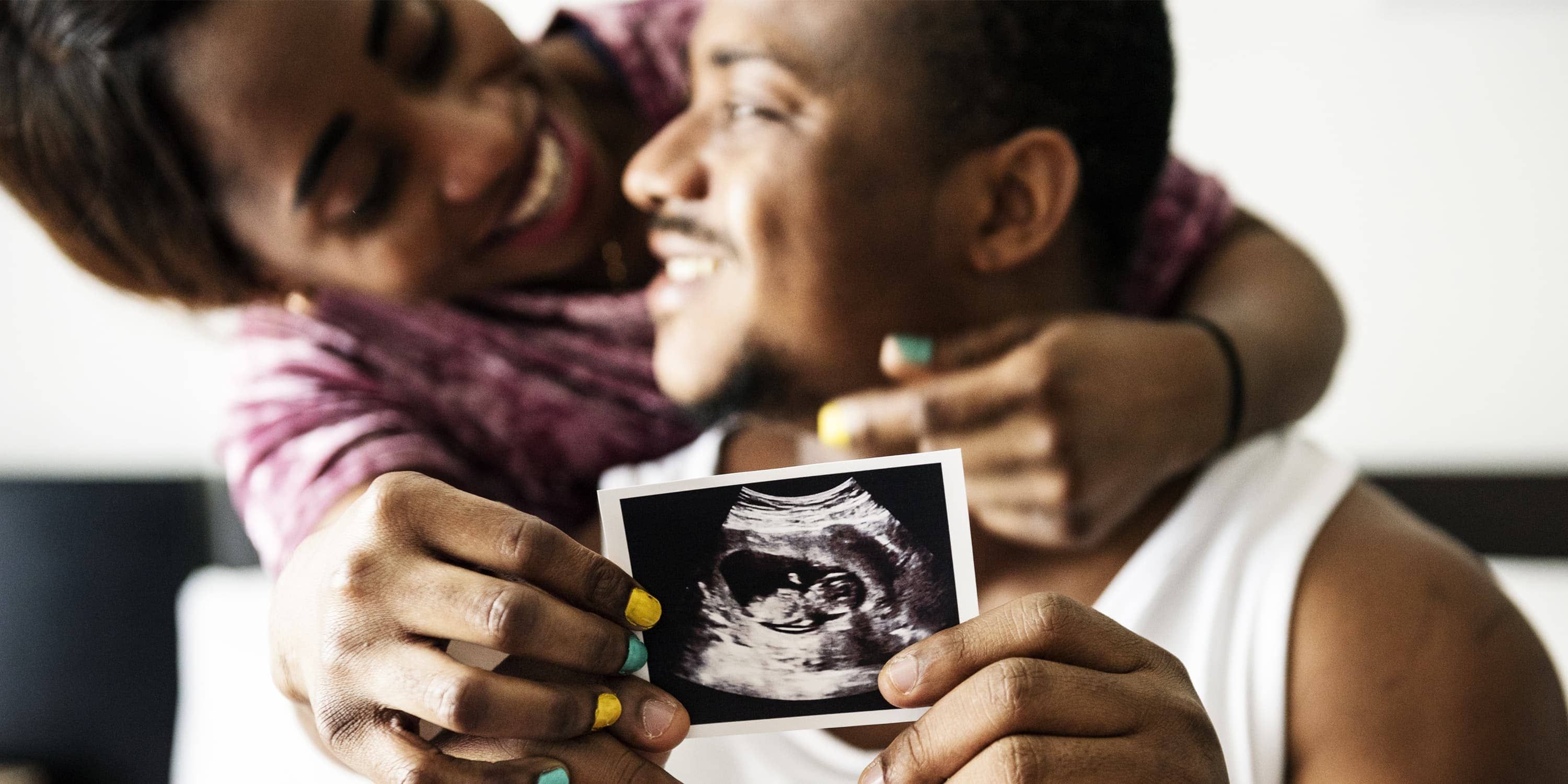Around the 24th week of pregnancy, many pregnant women get a bit of a shock: their belly becomes rock-hard! Before you start thinking "OMG, what's going on?!" and getting worried, read here about why you can relax when you feel your first "Braxton Hicks contractions" and what to expect during the final spurt of the second trimester!
What's going on inside you at 24 weeks pregnant?
Your baby is now roughly the size of a cantaloupe melon.
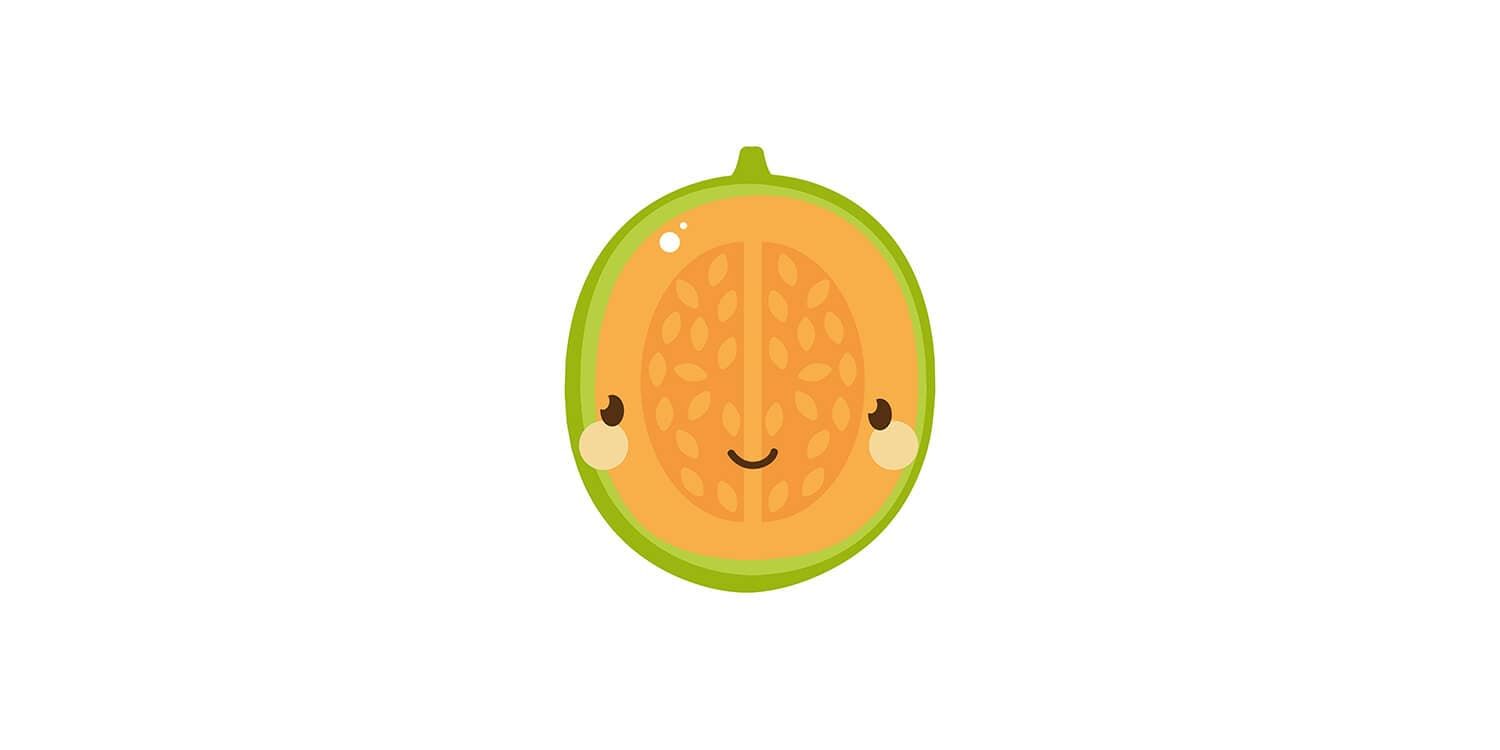
Now is the time when your baby reaches a huge milestone as the air sacs in the lungs (pulmonary alveoli) are developing. That is one reason why premature babies now have a chance of survival from the 24th week of pregnancy – not without a lot of medical help, but it is possible! Every day counts, because the air sacs in the lungs (pulmonary alveoli) need longer to develop and large quantities of the important material, known as surfactant, is formed so that the pulmonary alveoli doesn’t collapse.
The taste buds are now fully developed and your baby can get a better idea of what you have eaten from the amniotic fluid. Slowly, the eyes begin to open. And something else important is happening: an important part of the immune system is forming as a result of the white blood cells.
How do you feel at 24 weeks pregnant?
Perhaps you have already experienced this: suddenly, your belly becomes rock-hard, as if you had swallowed a bowling ball. This can come as quite a shock for mums-to-be. "Practice" contractions can occur earlier in pregnancy, however, at the beginning, these are only in small areas of the uterus. The further you are into your pregnancy, the greater the contractions of the uterine muscles become, and thus the stronger the sensation for you.
Unlike the "real" contractions of the cervix, these "practice" contractions, known as "Braxton Hicks contractions", don't last for very long. A change of position or drinking some water can help to ease them. Incidentally, John Braxton Hicks was a British doctor who specialised in obstetrics. In 1872, he differentiated between uterine contractions resulting in childbirth and practice contractions.
If I'm feeling contractions, when should I call a midwife or doctor?
With "practice" contractions (or Braxton Hicks contractions) the belly can become uncomfortably hard and you may experience light cramps, a little like period pains, but not usually any severe pain. Braxton Hicks contractions can occur quite regularly, but with long intervals between them – real labour pains come in waves, with just a few minutes between each wave. Braxton Hicks contractions usually ease with rest and also very often with heat, for example, by taking a bath.
You should seek medical advice for contractions if:
- The contractions come more frequently than 3 times per hour
- You experience them more than 10 times a day
- You experience severe pain
- You have any bleeding
Stress and physical exertion can bring on contractions – for this reason, make sure you rest more regularly and try to relax. Unlike Braxton Hicks contractions, True labour contractions help the baby to slide down lower into the pelvis and only usually come in the last few weeks of pregnancy, sometimes even only just before the start of labour.
Possible tests when you are 24 weeks pregnant
You may have a blood test to establish your rhesus type and test for certain antibodies. This is particularly important if you are rhesus negative and your child is rhesus positive. This difference isn't a problem in the first pregnancy. However, in subsequent pregnancies, the antibodies can harm your baby.
You may also be tested for gestational diabetes in the 24th week of pregnancy. This is to test how much sugar your body can break down. If test values indicate gestational diabetes, you will usually be given advice on nutrition. This particular form of diabetes is probably hormone-related and is likely to disappear all by itself after your baby is born. For this reason, it is usually enough to watch what you eat during pregnancy.
Image: Shutterstock















